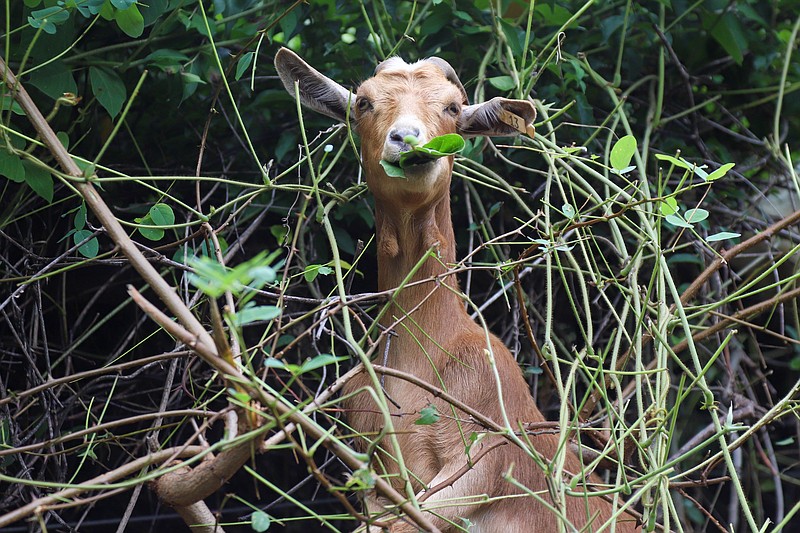After the failure of a recent controlled burn to destroy invasive plants on Maclellan Island, the Chattanooga Audubon Society plans to bring goats on boats to the organization's island in the middle of the Tennessee River to get the job done.
"We're trying to be pretty open with the public about what we're doing and use it as a learning experience for us and the public," Executive Director Jim Stewart said in a phone interview. "When we did the burn on the island, it wasn't as effective as we thought, and we shared that with the public, and now we're sharing that we're trying this as a next step based on many recommendations."
Officials with the city of Chattanooga and the Chickamauga & Chattanooga National Military Park also have employed the natural grazing tendency of goats for land management purposes, Stewart said.
(READ MORE: Why grazing goats are clearing Chattanooga trails)
"It's not something that we've invented just because it's cute," he said. "It is cute though."
The types of green plants present on the island and the lack of wind on March 12, the day of the controlled burn, were two main contributing factors to the failure of the burn to eradicate invasive plant species including euonymus, Japanese honeysuckle and periwinkle.
Diana Gennett, a forester and Chattanooga Audubon Society board member who developed land management plans for the society's six properties, said by phone that it. was the first attempt at a controlled burn on the island, where invasive plant species previously were pulled from the ground by volunteers.
The cost of using goats to control vegetation is similar to or less than the cost of using herbicides and just as beneficial, but it doesn't pose the same risk of environmental harm as the improper use of herbicides, David Aborn, a former board president of the Chattanooga Audubon Society who teaches biology and environmental science at the University of Tennessee at Chattanooga, said in a phone interview.
The society recently launched a fundraising campaign on its website with a goal of $15,000 to cover the cost of the goat initiative.
"Goats have been shown to work very well in terms of controlling invasive vegetation," Aborn said.
The goats will eat some native plants in addition to the invasive species, but once the goats and the invasive plants are gone, the native plants will have a chance to grow and the invasive plants will be easier to manage through other methods such as controlled burns, he said.
Since no formula exists to help determine the optimum number of goats to control the invasive plant species on the 20-plus-acre island, Stewart said the organization plans to test the method with a small number of goats and evaluate their progress sometime before this fall.
The goats will be transported by boat to the island, where they will remain for several weeks, Stewart said.
"Once they're out there, we're recruiting some volunteers to check in on them to make sure they're doing OK," he said. "We're not just going to leave them there and forget about them for a few weeks."
One benefit of the property's island location is that the goats can't leave. Unlike some species, such as deer, the goats won't try to swim away – and they don't need protection from predators like they would on the mainland, Stewart said.
To help ensure the goats' safety, camping on the island will be limited while the goats are there, he said.
"We'll probably give them some supplemental food sources, at least initially, to make sure they're getting enough nourishment," Stewart said.
Contact Emily Crisman at ecrisman@timesfreepress.com or 423-757-6508.

